News
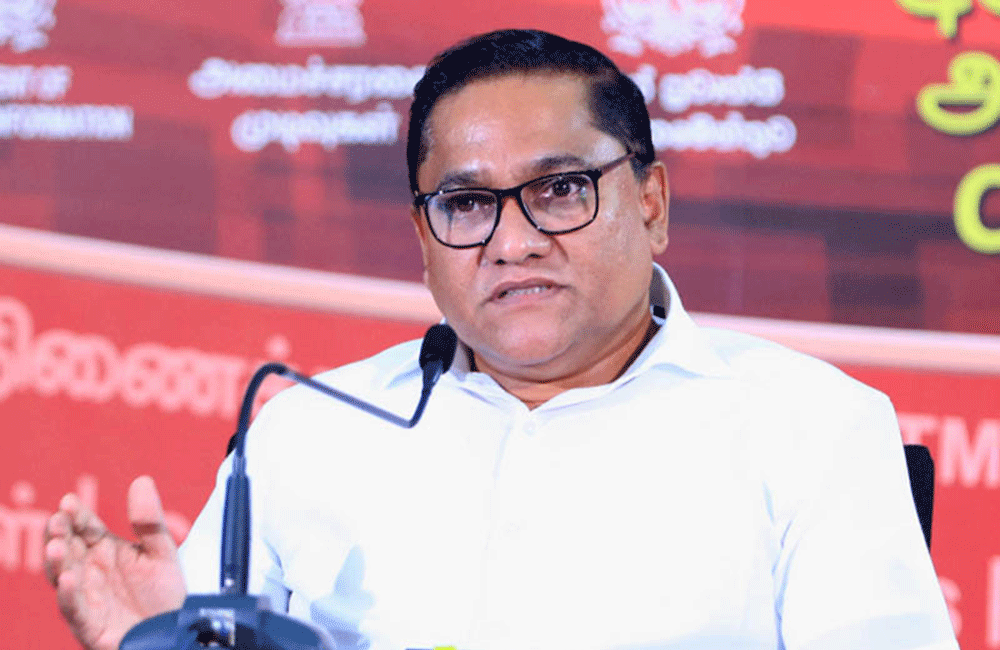
Vehicle imports will be considered only under strict guidelines: Minister
Cabinet Spokesman and Minister Vijitha Herath yesterday (15) confirmed the Government’s stance in favour of vehicle importation but stressed that it would not jeopardise the country’s foreign reserves or trigger another financial crisis.
“There is a significant demand for vehicles, and we acknowledge that. However, any import process will be considered only under a controlled and well-regulated procedure to avoid further pressure on foreign reserves,” he said in response to a question raised during the weekly post-Cabinet meeting media briefing.
Herath clarified that since taking office, the Government has neither imported vehicles nor allowed any with tariff concessions, despite prior Cabinet decisions allowing importation.
“We are of the view that vehicle imports should be allowed, but strictly under a streamlined and a controlled procedure,” he reiterated.
The import ban on vehicles, introduced in March 2020, was aimed at curbing the outflow of foreign exchange amidst the country’s deepening economic troubles.
In September, the previous regime announced that it has decided to lift the temporary suspension on motor vehicle imports, effective 1 October 2024. In a statement issued by the then Government, it noted that Sri Lanka will begin importing motor vehicles again, starting in stages, as part of a broader economic recovery strategy tied to the Extended Fund Facility (EFF) Program of the International Monetary Fund (IMF).
“Having considered the current economic and environmental factors, the Government has decided to make the following proposals for the consideration of the Cabinet of Ministers: 1. The removal of the temporary suspension on the importation of motor vehicles and non-motorised goods, classified under a total of 304 HS Codes, will be done in three stages: Stage 1: The importation of public passenger transport vehicles, special purpose vehicles, and other non-motorised goods will be allowed starting 1 October 2024, Stage 2: The temporary suspension on the importation of commercial or goods transportation vehicles will be lifted on 1 December 2024, Stage 3: The importation of personal usage motor vehicles (including cars, vans, sports utility vehicles, pickups, etc.) will be permitted starting 1 February 2025.”
According to the then Cabinet Memorandum, the phased lifting of restrictions is anticipated to inject much-needed energy into the auto industry and the broader economy, addressing challenges like an aging vehicle population, declining fuel efficiency, and rising maintenance costs.
The prolonged import restrictions had left Sri Lanka with an aging fleet of vehicles, characterised by declining roadworthiness and environmental concerns due to poor fuel efficiency.
“Importation of new vehicles is expected to stimulate economic activity by increasing Government revenue, particularly from vehicle imports, which have historically been a significant revenue stream for the country. However, while the reintroduction of imports will put pressure on foreign exchange reserves, measures have been implemented to balance this, including additional duties on motor vehicle imports,” the statement issued by the PMD under the previous administration noted.
(ft.lk)
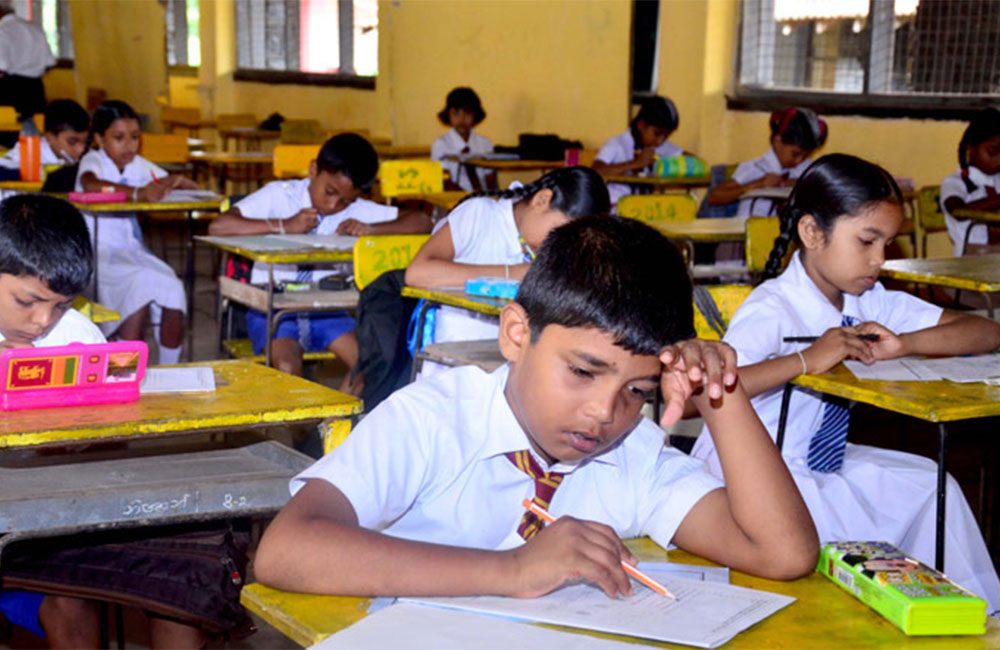
Decision taken not to re-conduct 2024 Grade 5 Scholarship exam
Furthermore, it has been decided to award free marks to all students for the 03 questions which were alleged to have been leaked.
Meanwhile, the evaluation of answer sheets, which had been temporarily suspended, is reportedly expected to commence immediately.
Several committees were appointed to investigate the scholarship examination, and their final conclusion was that only three questions had been leaked prior to the exam.
On September 20, an investigation was launched by the Department of Examinations after it was alleged that a question paper from the exam had been leaked. Later, the initial investigation report was handed over to the Criminal Investigation Department (CID), which also launched a separate investigation into the matter.
Meanwhile, the paper marking process of the Grade 5 Scholarship Examination, which was held on September 15, had been temporarily suspended, pending the investigation.
The Director of the Planning Division of the National Institute of Education (NIE) in Maharagama and a school teacher, who were arrested by the Criminal Investigations Department (CID) over the question paper issue, were remanded until October 22.
The arrested 58-year-old NIE Director was a member of the committee which prepared the 2024 Grade 05 Scholarship Examination paper, and the 49-year-old teacher had been conducting tuition classes for Grade 05 students.
The investigations had uncovered that only three questions from the exam had been leaked in advance. However, a group of parents, holding press conferences and staging protests on several occasions, had claimed that the entire question paper had been leaked.
The parents raised the issue with President Anura Kumara Dissanayake, and as a result, the evaluation of the answer sheets for the scholarship examination was suspended until the investigation was completed.
This year’s scholarship exam was held on September 15 at 2,849 centres across the island, with 323,879 candidates participating.
(adaderana.lk)
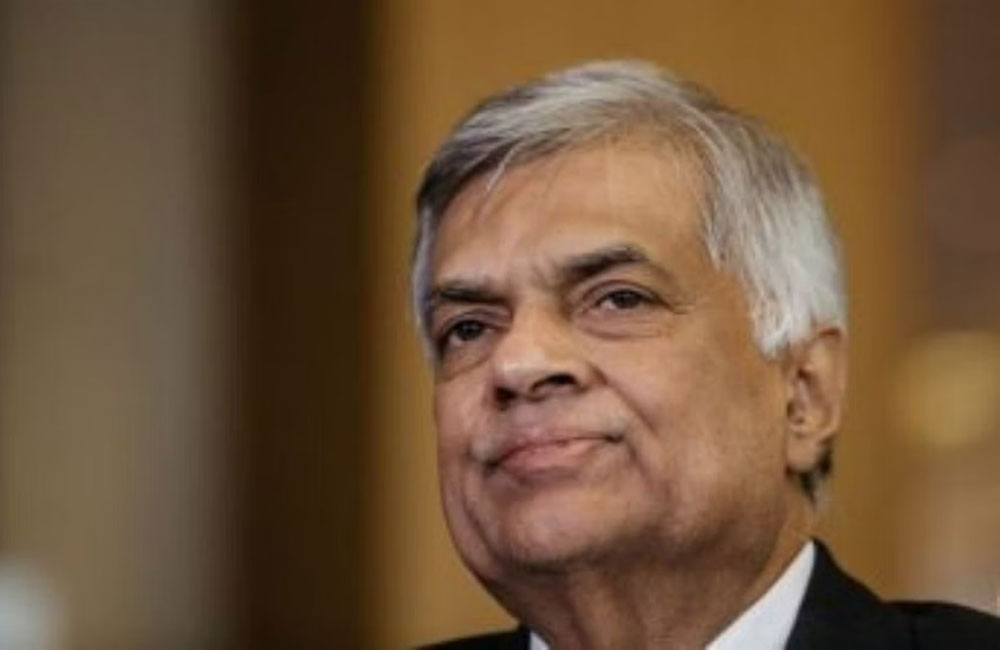
Ex-President Ranil to deliver special statement
The Leader of the United National Party (UNP), former President Ranil Wickremesinghe has announced that he will make a special statement to the public on Thursday (17).
This will be the first time that Wickremesinghe makes a public statement following the 2024 Presidential Election.
It is reported that the former President will reveal ‘the political behavior of the country’ and his future plans in this special statement.
Immediately after the General Election was announced, Wickremesinghe declared that he will neither contest the election, nor expect to enter Parliament through the National List.
However, all political parties that supported former President Ranil Wickremesinghe at the recent Presidential Election are to contest the upcoming General Election under the New Democratic Front (NDF), with the ‘Gas Cylinder’ as their symbol.
Former President Wickremesinghe had also contested the presidential election under the symbol of the ‘Gas Cylinder’, albeit as an independent candidate.
(adaderana.lk)
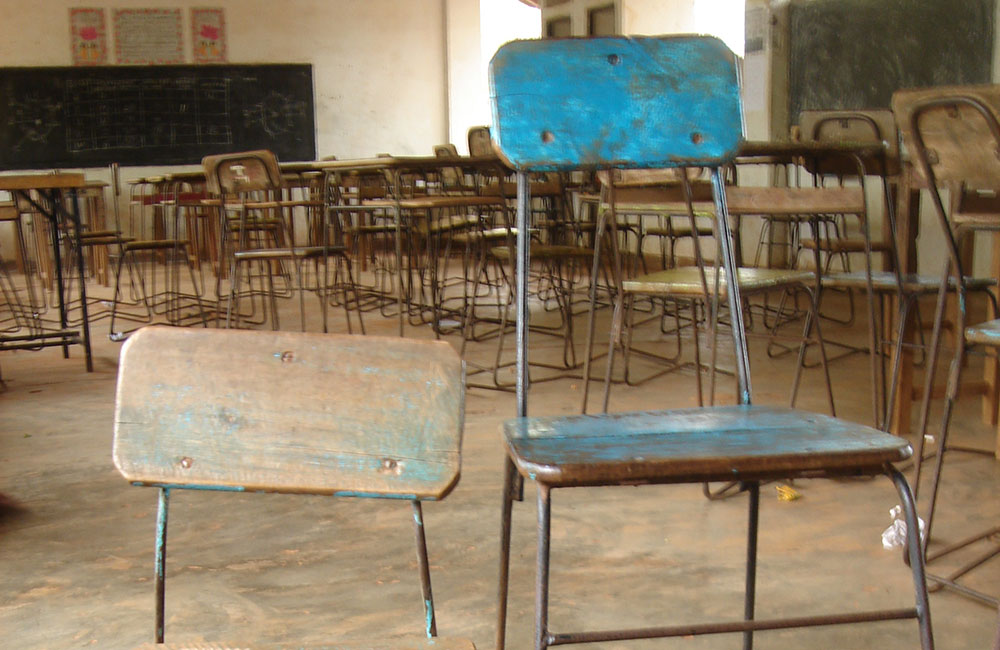
Schools closed in several education zones on Monday and Tuesday
The education authorities have decided to keep the schools in several educational zones closed on Monday (14) and Tuesday (15) in view of the prevailing adverse weather conditions.
Accordingly, all government schools of the Gampaha, Kelaniya, Kolonnawa and Kaduwela educational zones will remain closed on Monday and Tuesday.
Meanwhile, the Western Provincial Education Director said that all government schools in the Colombo educational zone will be closed tomorrow (14).
Earlier today, it was announced that all government schools in Kaduwela and Kolonnawa Education Zonal Divisions in Colombo District and the Wattala Zonal Division in Gampaha District will be closed tomorrow, in view of the prevailing adverse weather condition.
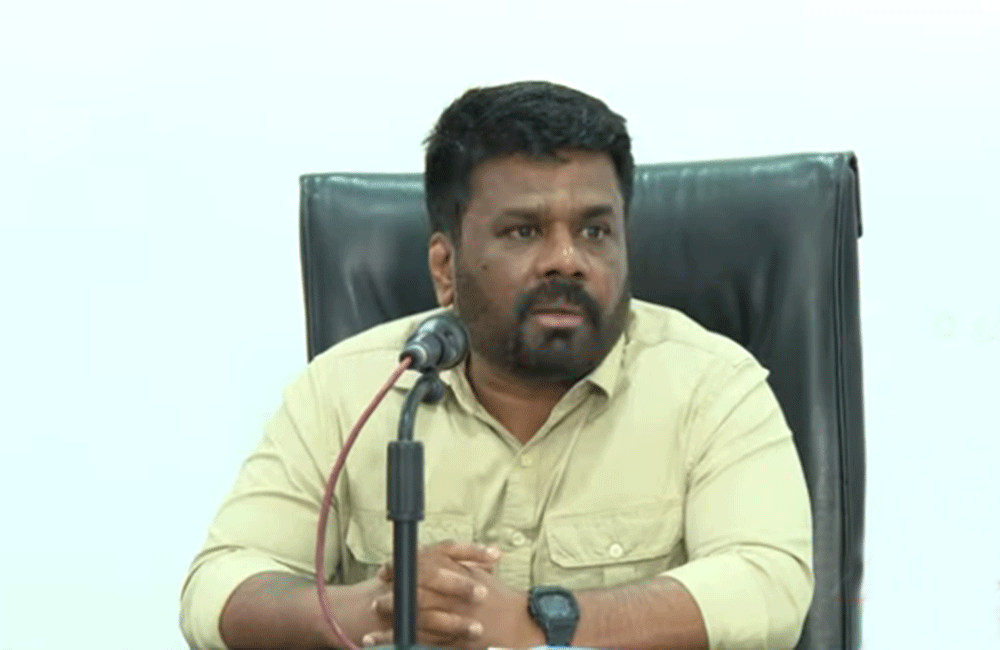
Accountability and Efficiency in State Services - AKD
President Anura Kumara Dissanayake said that he has a responsibility to uphold the aspirations of the people.
Speaking at a progress review meeting of the Ministry of Power and Energy, the President stated that he expects the support of officials to fulfill these public expectations.
“Our country has a perception that more money leads to more corruption. However, we must all understand the significance of the mandate given by the people in the recent presidential election. The citizens have chosen a new team, and this decision is a determined one, not a routine political power shift. It reflects a significant and deliberate choice by the people to entrust power to a new group. Therefore, we have a responsibility to uphold and protect the aspirations embedded in this mandate,” stated President Dissanayake.
He emphasized that the public’s decision was influenced by various factors, primarily their dissatisfaction with state services. “We have a duty to create a state service that efficiently meets the needs of the citizens. This sector frequently interacts with the public, making it crucial for you to establish an environment that allows you to perform your duties effectively and without causing difficulties for the people,” he said.
President Dissanayake also stressed the importance of prudent financial management. “We must treat every cent of public money with the same care as we would sacred property. We have no right to waste or misuse public funds. This principle is part of our mandate. All of us, including myself, are accountable to the people. Therefore, I urge you to set aside past actions and accusations. We will address those separately. From now on, I need your support to fulfill this mandate,” he added.
He called for a new political culture that holds politicians accountable to the people and aligns with the promises made during elections. “The era of deceiving the public during elections and then reverting to old political practices must end. We need to establish a political culture that holds us accountable to the people,” he asserted.
The President stressed on the significant responsibility placed on public officials to uphold the integrity of the mandate and meet the expectations of the people. “We seek your support in this endeavor. We will stand by you in all your rightful actions within your official duties. However, if any misconduct occurs, we will not hesitate to take necessary actions,” he warned.
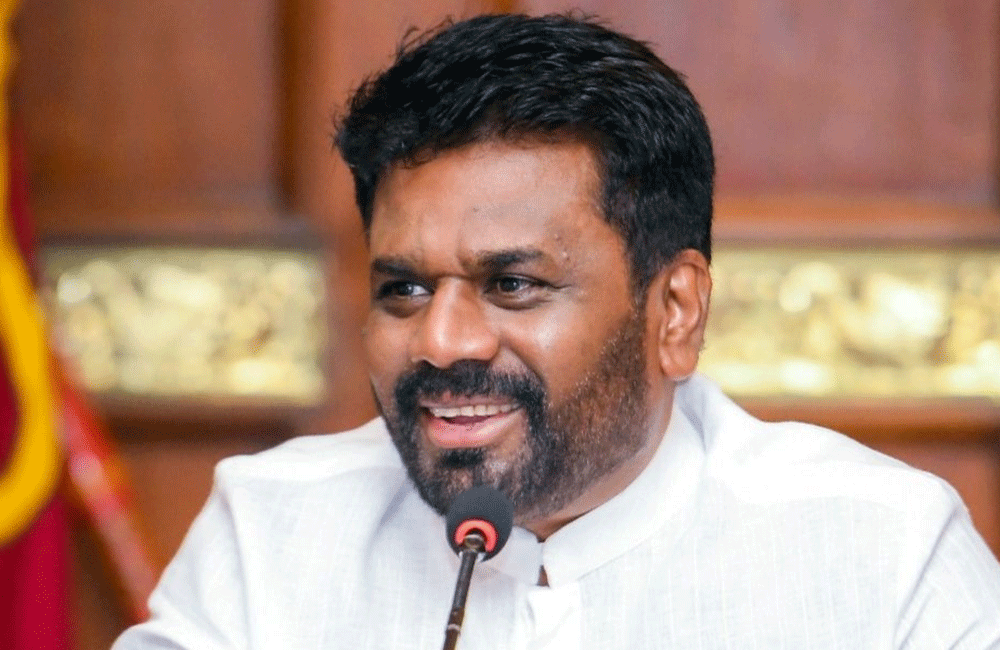
President directs officials to provide immediate relief to those affected by adverse weather
President Anura Kumara DIssanayake has instructed officials to provide immediate relief to those affected by the Adverse Weather.
The President has instructed the Secertary of Defence to take steps to ensure the safety of people living in area that have been affected by the extreme weather.
The President has also instructed the Ministry of Finance to allocate 50 million rupees to provide relief to the people.
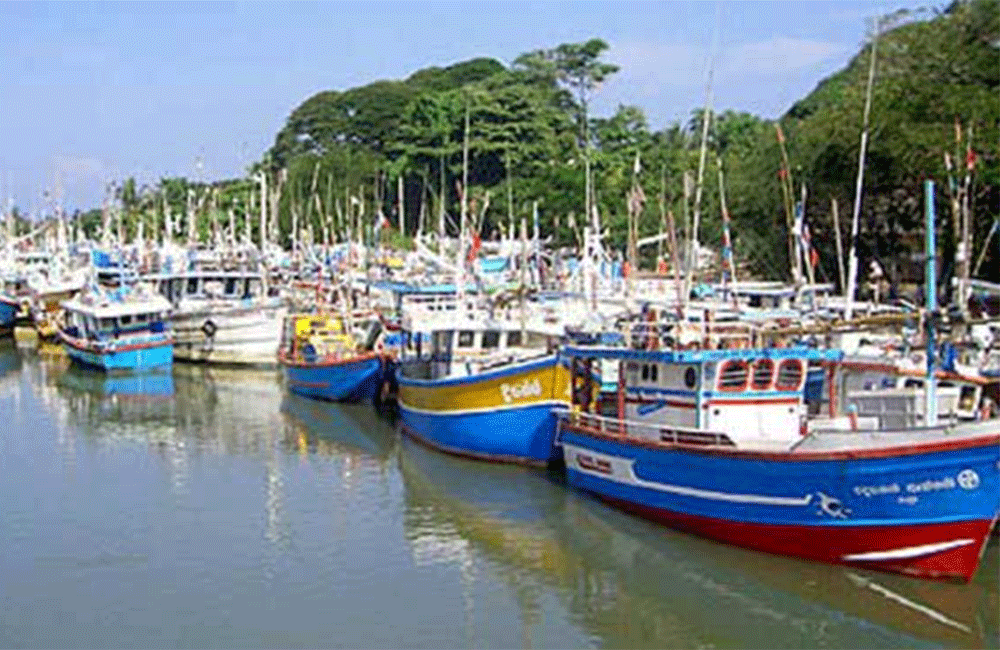
Rs 25 fuel subsidy : Govt announces three key concessions for Fisheries
The government has taken measures to provide key concessions to uplift the economic condition of Sri Lanka’s fisheries community.
According to the government, the former Cabinet had approved remedial measures for the unfavourable impacts on the fishing industry due to the huge increase in fuel prices, but the said decision was not implemented.
Therefore, the current Cabinet of Ministers has approved the proposal presented by the President, in his capacity as the Minister of Fisheries, to provide certain concessions for six months effective from 01-10-2024.
The following are the concessions to be granted by the government to the fisheries community;
To grant a subsidy of Rs. 25 per litre of diesel to fishing vessel owners who obtain diesel as fuel, for up to Rs. 300,000 per month for 06 months.
To provide a subsidy of Rs. 15 per litre of kerosene for vessel owners who obtain kerosene as a fuel, for 25 days per month, limiting to working days only.
Whenever price revisions are made for diesel and kerosene, the maximum concession price for diesel is Rs.250/- and the concession price for kerosene is Rs. 150/-, subject to the maximum six-month period.
This program is maintained in such a way that the fishing communities have received a concession of 7.5 % from the market value for diesel and a concession of 12.5% from the market value for kerosene.
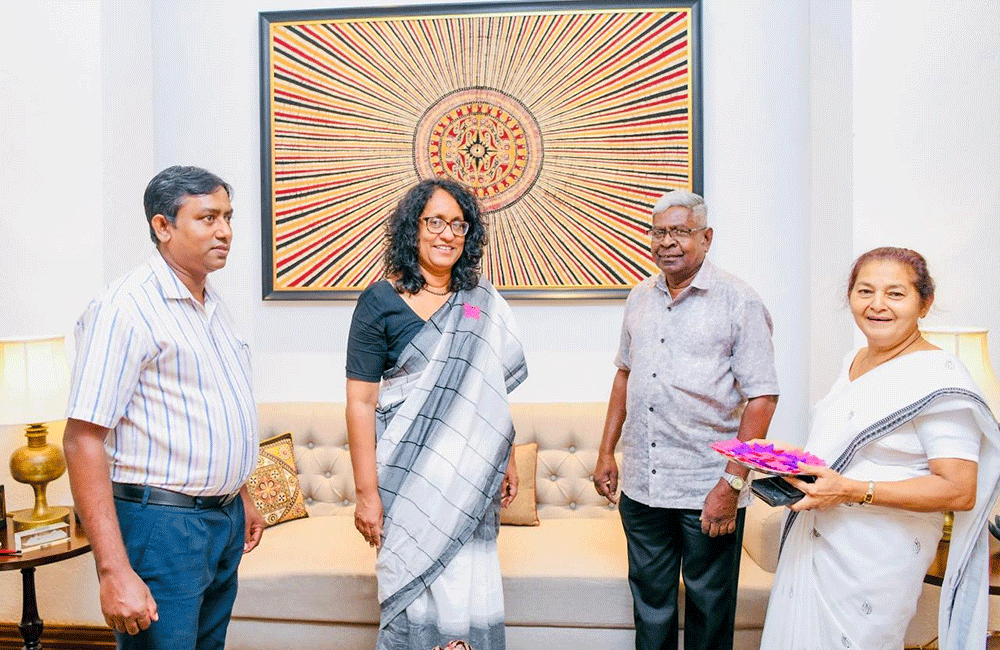
World Mental Health Day : Butterfly logo presented to PM
Sunil Keerthi Nanayakkara, Operations Director of Consumer Action Network Mental Health Lanka (CAN MH Lanka), presented a butterfly logo to the Prime Minister in honor of World Mental Health Day, which falls on October 10, 2024.
CAN MH Lanka, established in 2012, advocates for mental health awareness and education. This year’s World Mental Health Day, themed “Mental Health at Work,” focuses on promoting mental well-being in the workplace. The global event, initiated by the World Health Organization in 2013, aims to highlight the importance of supporting individuals experiencing mental health challenges.
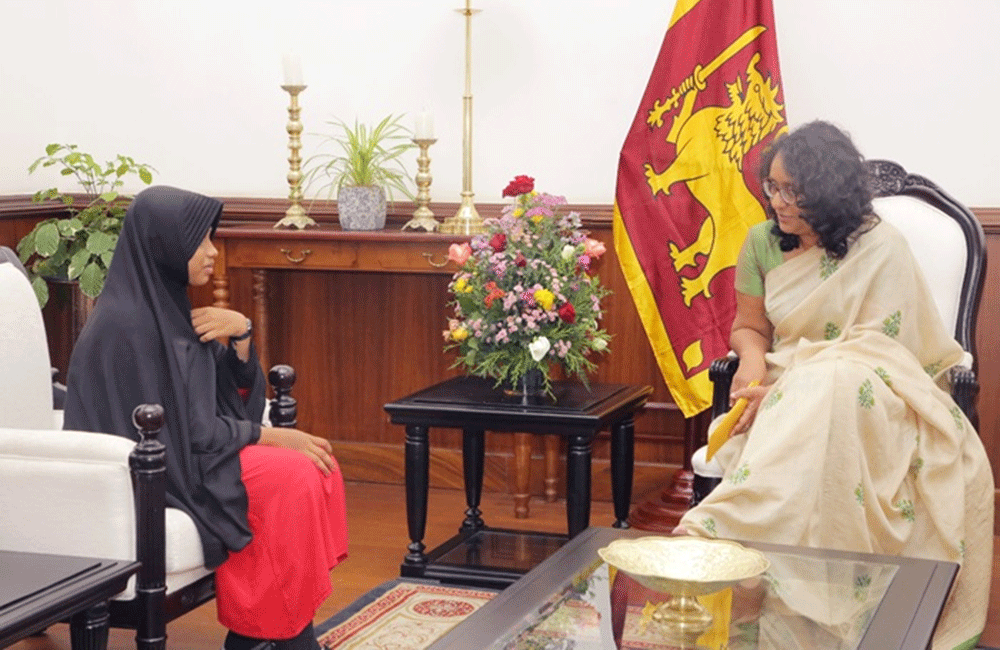
14 yr old cycles from Kattankudy to meet PM
A 14-year-old female resident of Kattankudy has arrived on a bicycle to meet Prime Minister Harini Amarasuriya over two key social issues in her area.
According to the Prime Minister’s Office, Fatima Nada arrived from Kattankudy to Colombo by bicycle to hand over a message to PM Harini Amarasuriya.
During the meeting at the PM’s Office this morning, the young student requested immediate action against the drug menace affecting children and youth and to prevent child abuse.
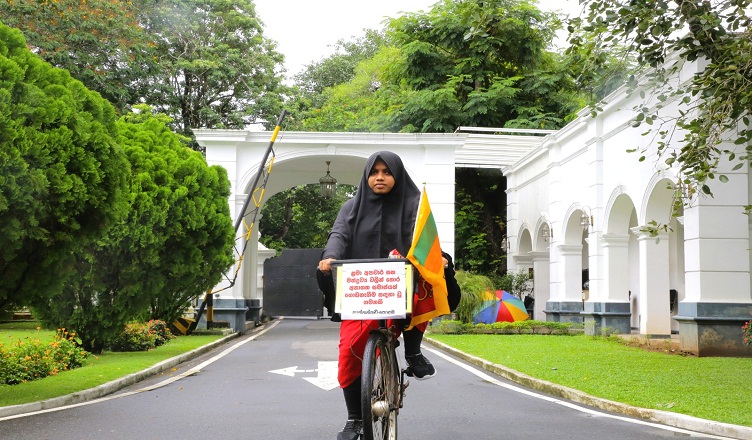
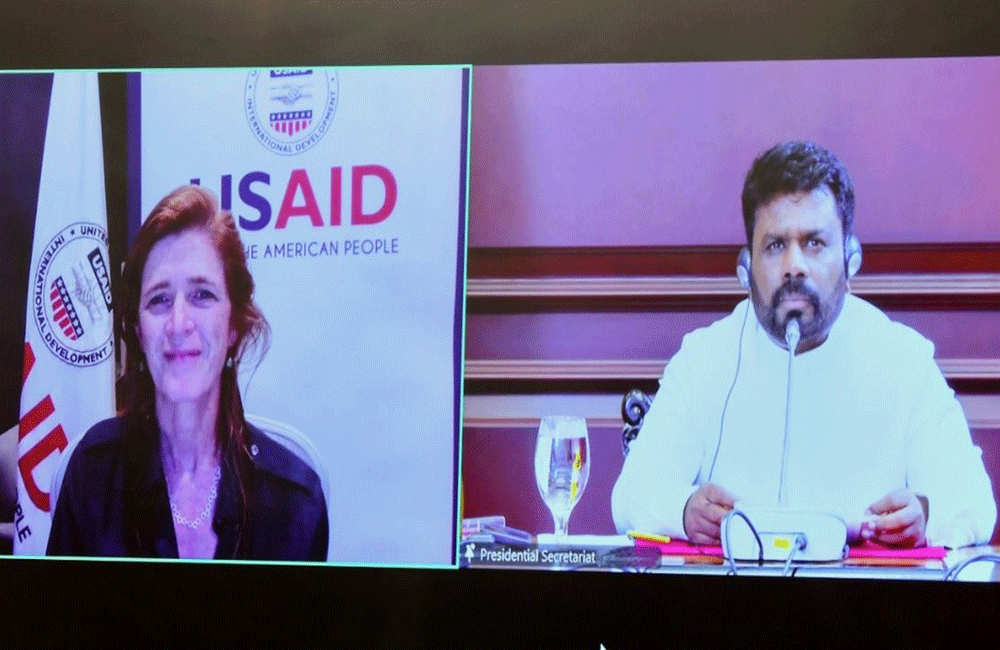
President holds virtual discussion with USAID administrator on future cooperation
President Anura Kumara Dissanayake conducted a virtual discussion yesterday (11) with the administrator of the United States Agency for International Development (USAID) Samantha Power.
During the meeting, the two exchanged views on matters of mutual interest and explored avenues for future cooperation.
Notably, Samantha Power stated that USAID is willing to support the government aligning with the manifesto presented to the people.
She also assured President Dissanayake that USAID is prepared to support Sri Lanka in any way needed.
This commitment reflects a shared vision for enhancing development and cooperation with the USAID agency.
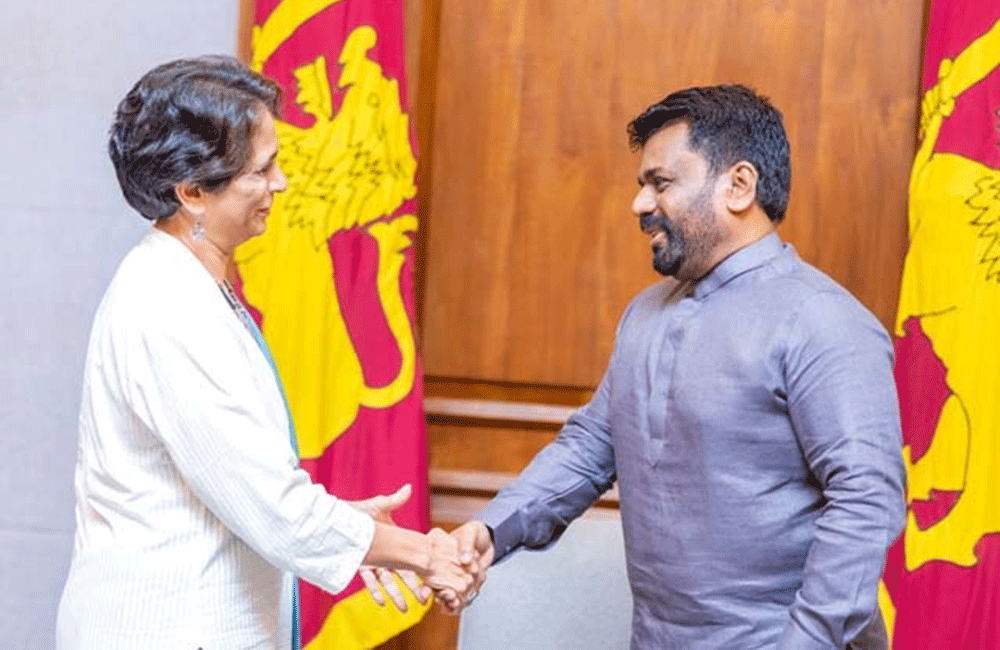
UNDP pledges support for governance and economic reforms in Sri Lanka
The Assistant Secretary General of the United Nations Development Programme (UNDP), Kanni Wignaraja, has met with President Anura Kumara Dissanayake this morning (14) at the Presidential Secretariat.
The discussion primarily focused on governance, constitutional reforms, and the country’s electoral system, according to the President’s Media Division (PMD) stated.
The UNDP representative presented the report on “Understanding Multidimensional Vulnerabilities: Impact on the People of Sri Lanka” to President Dissanayake. Based on the findings of this report, the UNDP assured its support for Sri Lanka’s development efforts.
A key point of discussion was the low level of women’s participation in the economy. The UNDP noted that rural women face significant challenges in financial literacy, limiting their involvement in economic activities.
The farming sector, in particular, suffers from poor economic literacy, resulting in underrepresentation in the national economy. The UNDP expressed willingness to assist with digitalization programs, highlighting it as a critical tool to minimize corruption, the statement said.
Discussing Sri Lanka’s low agricultural productivity compared to other Asian nations, President Dissanayake explained that many farmers have small plots of land and do not view farming as their primary source of income. To address this, the government plans to strengthen farmers’ associations, which would help improve bargaining power and agricultural activities, the PMD reported.
Discussing reforms to the electoral system, President Dissanayake pointed out such reforms should ensure inclusive representation of ethnic and religious communities.
Addressing concerns over the microfinance sector, the President explained the interests are unfair and that the current administration plans to establish a new development bank to support the microfinance sector, with a focus on greater involvement of women.
The government also plans to provide Treasury guarantees for the best proposals submitted by women entrepreneurs to help them secure capital.
The UNDP reaffirmed its commitment to supporting the government’s reforms, anti-corruption efforts, and increasing women’s participation in both the economy and Parliament, said the PMD.
Resident Representative of the UNDP in Sri Lanka, Azusa Kubota, along with Team Leader for Strategic Engagement, Digital, and Innovation, Fadhil Bakeer Markar also participated in the discussion.
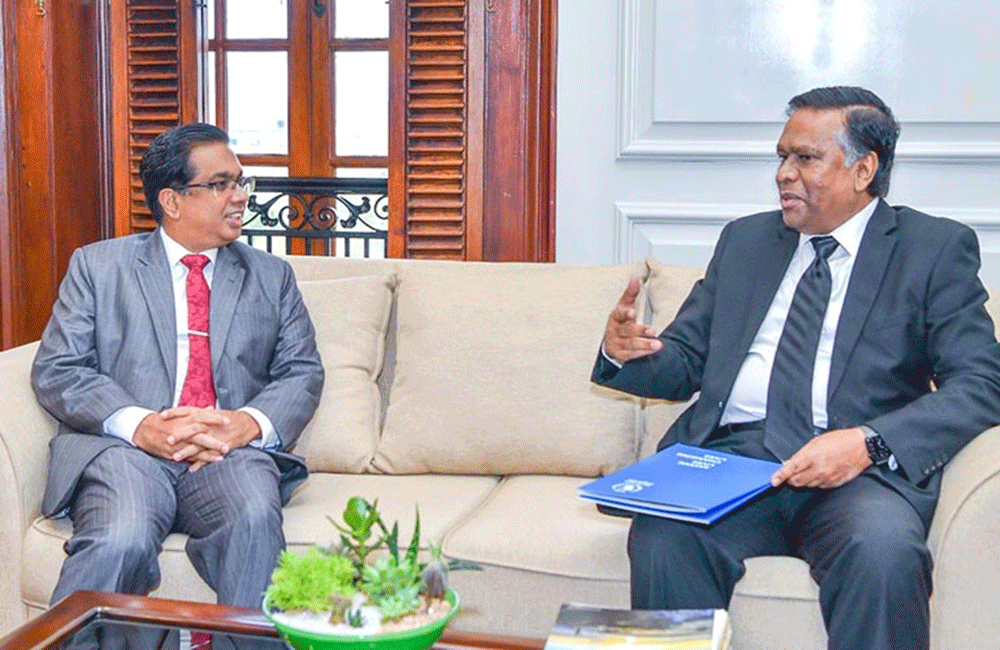
WFP Assures Continuous Support to Sri Lanka
Secretary to the President, Dr. Nandika Sanath Kumanayake, met with a delegation from the World Food Programme (WFP) at the Presidential Secretariat this morning (11).
During the meeting, the WFP representatives agreed to continue their on-going programs in Sri Lanka through the World Food Programme, ensuring no disruptions.
Although the food crisis in Sri Lanka has eased to some extent, the WFP officials expressed their willingness to extend further support through new programmes whenever additional needs arise.
The WFP delegation included WFP Country Director Abdur Rahim Siddiqui, the Government Partnerships Officer Musthafa Nihmath and the Gerard Rebello , WFP Sri Lanka ‘s Deputy Country Director. Additional Secretary to the President, Roshan Gamage, also attended the meeting.
Page 30 of 534